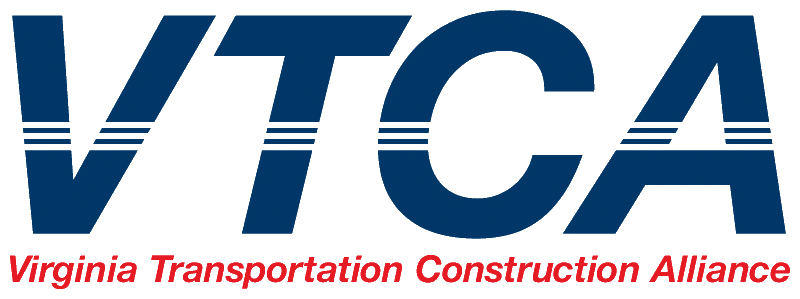VDOT Paving Program – VDOT/Industry Review
The Virginia Department of Transportation (VDOT) recently held its semi-annual check-in with the asphalt paving industry, represented by the Virginia Transportation Construction Alliance (VTCA), Virginia Asphalt Association (VAA), and the Old Dominion Highway Contractors Association (ODHCA). The meeting highlighted critical industry topics: safety, project scheduling, pricing impacts, quality concerns, and future planning.
Safety is Paramount
Safety was at the forefront of the discussion, especially given the alarming number of work zone incidents and fatalities reported in Virginia and other states this year. Top contributors to the alarming increase in accidents include:
- Distracted driving.
- Excessive speeding in work zones.
- Incidents involving work vehicles backing up in the work area.
The group proposed several measures to enhance work zone safety: implementing lower speed limits, increasing warning signage, and introducing additional safety gear such as lighted vests, halo lighting on helmets, and glow sticks. VDOT encourages contractors to communicate with District Construction Engineers (DCEs), emphasizing the need for reduced speeds in work zones.
The group acknowledged that it is evident that there is limited presence and availability of law enforcement in many districts. VDOT is exploring alternative solutions such as blue light trailers, a safety measure already used in neighboring North Carolina. To address these safety challenges further, VDOT has agreed to reconvene a stakeholder group that first met with VTCA's Contractor Leadership Group in 2023 with the Virginia State Police later this fall. VDOT will expand meeting participation to include representatives from several industry associations.
Scheduling and Resource Management
Despite many challenges, most firms have reported that their schedules are on track to meet their contract's fixed completion dates. However, the merger of striping contractors continues to introduce challenges in finalizing project completion. The consolidation of the striping contractors has made it more difficult for prime contractors to achieve the Disadvantaged Business Enterprise (DBE) and Small, Woman, and Minority Enterprise (SWaM) participation goals.
VDOT's New 15-Month Pilot Projects
VDOT introduced 15-month pilot projects across all districts, totaling $27 million. The industry welcomed the pilot, noting that while it provides flexibility, it fosters more competition. The industry expects this approach will continue to encourage efficient project delivery.
Pricing and Inflationary Impacts
While inflation and commodity pricing continue to affect the industry, there has been some relief, particularly with moderated aggregate and liquid prices.
Quality Improvements Noted, but Issues Remain
Quality was a significant discussion point, with VDOT acknowledging improvements over the previous year. Rideability has enhanced, and several DCEs have positively noted the progress. However, there are still areas needing attention:
- Transverse Joints: take-off joints need improvement, as sporadic issues have been observed across five districts.
- Scabbing: VDOT has issued a memo on this topic and will work with inspection staff to address the problem. VDOT encourages the industry to address the issue with VDOT and escalate as appropriate.
- Tack Handling and Field Application: Performance issues with non-tracking tack and globs of material on interstate ramps and at intersections have been identified as process-related rather than material-related.
- Timing/Quality of Pavement Marking Application: Coordination between VDOT staff and striping crews remains challenging, mainly when crews arrive on-site without prior notice. Overall quality of pavement markings continues to be an issue with incorrect layouts.
Looking Ahead: 2024-2025 Paving Plans
VDOT has released the “first draft” of anticipated paving for calendar year 2025, and industry members are encouraged to review the details. Additionally, VDOT plans to consolidate the number of base mixes used statewide, moving from three to one, to address SMA permeability issues observed after rain.
Incentive and Disincentive Plans
VDOT is refining its incentive/disincentive plans for paving contracts, focusing on rideability, density, and asphalt content variability. Future assessments will be tied to the combined performance of all three components. Approximately $18 million in incentives were allocated in 2024.
Addressing Future Needs and Regional Standards
Industry representatives emphasized the need for a balanced and predictable program at a district level to enable firms to plan and grow efficiently to meet VDOT's needs. There was also discussion on the challenges posed by Northern Virginia's new standard limits of operation, which will increase costs for future work.
Positive Outcomes and Future Collaboration
Overall, the meeting fostered productive discussions with VDOT and the industry associations, which committed to enhancing safety, maintaining project schedules, and improving quality standards as they navigate current challenges.
Stay Engaged with VTCA
VTCA will continue to successfully advocate for our members and keep you informed of ongoing developments within the paving industry. Don't hesitate to contact the office with questions or comments about VDOT's draft plans or any other item covered in the meeting.
